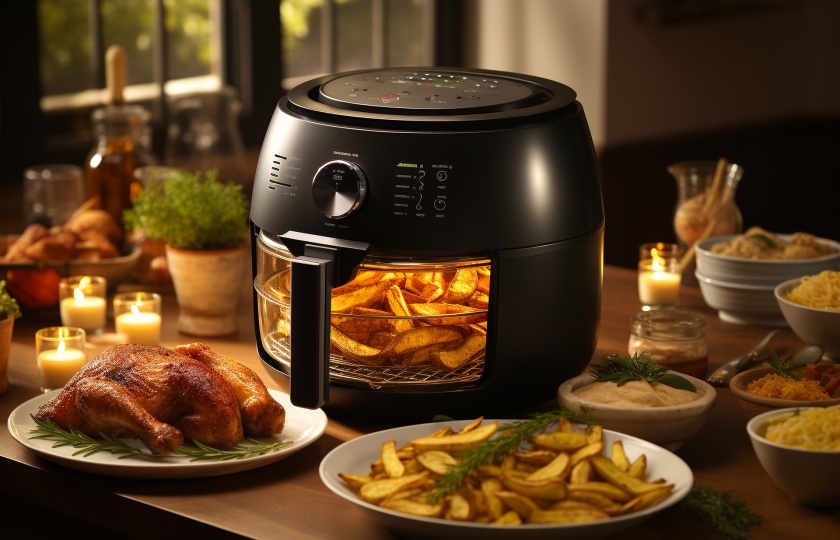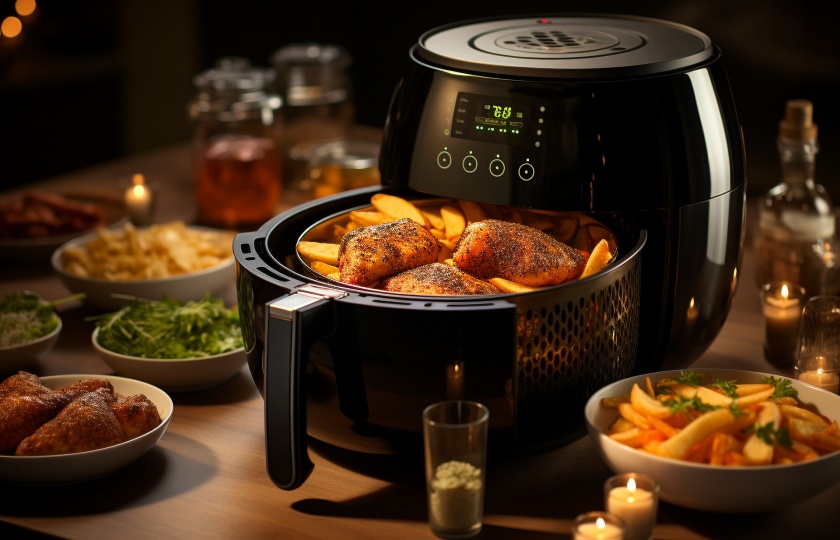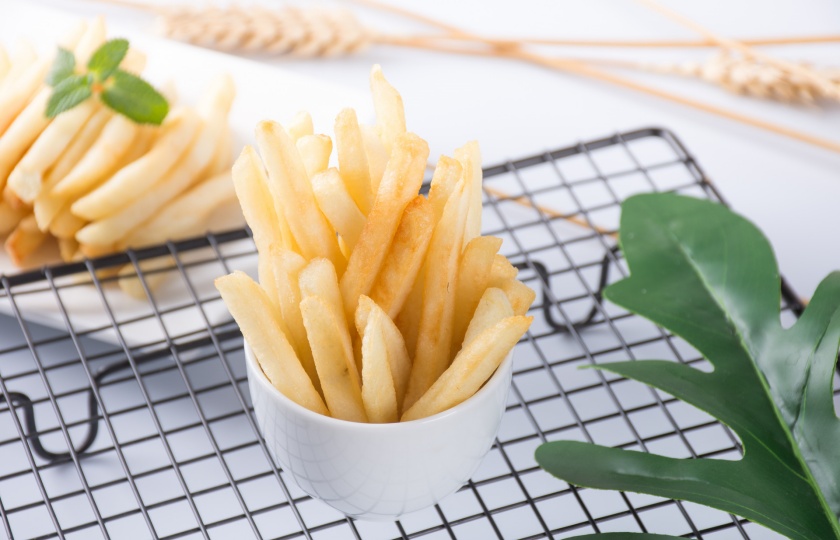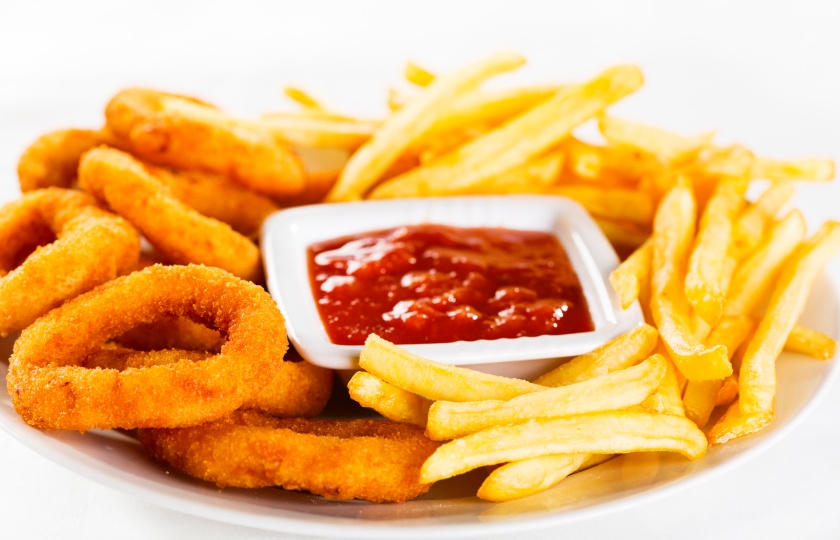What Temperature Should You Use for Homemade Fries in an Air Fryer?

My friends always rave about the fries I make in my air fryer. Today, I’m sharing one of the key secrets—the ideal temperature for making crispy fries in an air fryer!
What temp to cook homemade french fries in air fryer?
The key to making successful fries in an air fryer is getting the temperature right.
In general, I recommend setting your air fryer temperature between 180°C (356°F) and 200°C (392°F). The exact temperature depends on the thickness of your fries and the level of crispiness you prefer.
If your fries are thicker, I suggest starting at 180°C (356°F) for 15 to 20 minutes to cook them through, then increasing the temperature to 200°C (392°F) for an additional 5 to 8 minutes to get a golden and crispy exterior.
For thinner fries, start at 180°C (356°F) for 10 to 15 minutes, then increase to 200°C (392°F) for 3 to 5 minutes.
Keep in mind that different air fryer brands and models may have slight temperature variations, so keep an eye on your fries during the cooking process and adjust the time or temperature if needed to ensure a perfect outcome.
Should you salt potatoes before air frying?
I recommend adding salt before air frying. Here’s why:
Enhanced Flavor: Adding salt to the potato strips before air frying allows the seasoning to penetrate the potatoes, making them tastier as they cook. The salt will be evenly distributed, enhancing the overall flavor of the fries.

Prevents Sticking: After salting the fries, the surface of the potatoes forms a thin salt layer that helps prevent them from sticking together during frying, keeping each fry distinct and making the finished fries more attractive.
Improves Texture: Salt helps the moisture on the potato’s surface evaporate at high temperatures, making it easier for the fries to become crispy. Additionally, it enhances the natural flavor of the potatoes, making them more delicious.
Why soak fries before air frying?
Soaking the fries before air frying is a crucial step that helps improve both their texture and appearance.
Soaking removes excess starch from the surface of the fries, leading to a more even cook and a golden color. Without soaking, the fries will have a sticky surface that makes them more likely to clump together and become less crispy.
Additionally, soaked fries tend to retain moisture inside, allowing the exterior to crisp up in the air fryer while keeping the inside soft and tender—creating that perfect "crispy on the outside, tender on the inside" texture.
Without soaking, the starch on the fries’ surface can easily caramelize at high temperatures, producing more smoke. By soaking the fries first, the removed starch prevents this, resulting in cleaner and healthier fries.
Soaking also allows the fries to absorb some water, which will evaporate during cooking, helping the exterior crisp up more effectively.
What happens if you don't soak fries before frying?
Softer Texture: If you skip soaking, excess starch on the fries' surface can cause them to become mushy rather than crispy.

More Oil Absorption: Fries that haven't been soaked will absorb more oil during frying, making them greasy and less healthy. Soaked fries have smoother surfaces and absorb less oil, staying crispier.
Uneven Color: Soaking helps remove excess starch and ensures that the fries cook more evenly, with a beautiful golden color. Without soaking, fries may end up unevenly colored or even burnt in some areas.
Inconsistent Texture: Soaked fries will have an even exterior that crisps up uniformly, giving them a consistent texture. Without soaking, the fries’ outer layers might be too thick, while the inside remains undercooked, leading to inconsistent texture.
Why add vinegar in water for french fries?
Maintains Crispiness: The acidic properties of vinegar help form a protective layer on the surface of the potatoes, preventing excess moisture from seeping in. This helps the fries stay crispy while frying.
Prevents Softness: Potatoes contain a lot of starch, and boiling them without vinegar can cause them to break down and become mushy. Adding vinegar helps the potato structure stay firm, ensuring that the fries are crispy on the outside and tender on the inside.
Enhances Flavor: A small amount of vinegar can add a subtle tang, enhancing the natural flavor of the potatoes and making your fries taste richer and more complex.
What is the best oil for crispy fries?
Peanut Oil: I think peanut oil is an excellent choice. Its high smoke point makes it stable during frying, and it doesn’t break down easily into harmful substances. Plus, it imparts a delicious peanut flavor to the fries.

Corn Oil: Corn oil has a mild flavor that won’t overpower the taste of the fries. It’s also stable and works well to achieve a golden, crispy texture.
Palm Oil: While not common in home kitchens, palm oil is often used in professional fryers. Its high level of saturated fat makes it very resistant to breakdown, and fries fried in palm oil stay crispy for longer.
No matter which oil you choose, it's important to control the temperature carefully. Typically, you should aim for an oil temperature of 170°C (338°F) to 180°C (356°F) for the best crispy fries!























